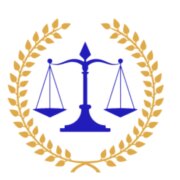Best Bankruptcy Lawyers in Durban
Share your needs with us, get contacted by law firms.
Free. Takes 2 min.
List of the best lawyers in Durban, South Africa
About Bankruptcy Law in Durban, South Africa
The field of Bankruptcy Law in Durban, South Africa is identical to bankruptcy law throughout the Republic of South Africa. The applicable legislation is the Insolvency Act 24 of 1936. Bankruptcy, known as insolvency in South African law, pertains to situations where a person is unable to meet their financial obligations, prompting the asset sequestration process to begin. A trustee is then appointed by the master of the High Court to handle the individual's financial affairs and pay off their creditors.
Why You May Need a Lawyer
Engaging a lawyer can be beneficial in situations such as contesting a sequestration order, negotiating debt restructuring, determining the viability of voluntary sequestration, or protecting specific assets during the bankruptcy proceedings. A lawyer can offer valuable guidance and support to ease the strain of the legal process. In addition, they can navigate and interpret the complex laws and regulations that pertain to bankruptcy in South Africa.
Local Laws Overview
The Insolvency Act 24 of 1936 governs bankruptcy in Durban, South Africa. When an individual is unable to pay their debts, their assets can be legally seized and sold to compensate for their debts. This process is known as sequestration. Debtors can voluntarily submit an application for sequestration, or it can be enforced by the creditors through involuntary sequestration. Once declared insolvent, an individual is prohibited from obtaining credit without informing the potential creditor of their status.
Frequently Asked Questions
What is the difference between voluntary and involuntary sequestration?
In voluntary sequestration, an individual submits a request to the court for sequestration. In involuntary sequestration, creditors initiate the sequestration request through legal proceedings.
Are all assets up for seizure during the bankruptcy process?
The law stipulates that certain assets, such as necessary domestic furniture, clothing, tools of trade up to a specified limit, life insurance policies, and pension funds, are excluded from seizure.
Can I apply for bankruptcy if I am unemployed?
Yes, you can. Your unemployment status will not prevent you from filing for voluntary sequestration, although the courts will critically analyze your application.
Can my sequestration be reversed?
Yes. Once you have paid off all your debts and fulfilled various other conditions, you can apply for rehabilitation, effectively reversing your sequestration.
What are the future implications of sequestration?
Sequestration can significantly impact one's credit rating and ability to borrow in the future. A record of sequestration remains on your credit report for around 10 years, and you are legally obliged to inform potential creditors of your status.
Additional Resources
The South African National Credit Regulator (NCR), the Insolvency and Trustees Association of South Africa, and the South African Legal Information Institute offer a wealth of information and resources on bankruptcy law.
Next Steps
If you find yourself in need of legal advice for bankruptcy in Durban, getting in touch with a local lawyer skilled in insolvency law may be the best course of action. They can offer guidance tailored to your situation and help you navigate the complexities of the legal process. Additionally, it is crucial to understand the seriousness of a bankruptcy declaration and make sure you explore all options before deciding on sequestration. Financial counselling from accredited professionals may also be beneficial.
Lawzana helps you find the best lawyers and law firms in Durban through a curated and pre-screened list of qualified legal professionals. Our platform offers rankings and detailed profiles of attorneys and law firms, allowing you to compare based on practice areas, including Bankruptcy, experience, and client feedback.
Each profile includes a description of the firm's areas of practice, client reviews, team members and partners, year of establishment, spoken languages, office locations, contact information, social media presence, and any published articles or resources. Most firms on our platform speak English and are experienced in both local and international legal matters.
Get a quote from top-rated law firms in Durban, South Africa — quickly, securely, and without unnecessary hassle.
Disclaimer:
The information provided on this page is for general informational purposes only and does not constitute legal advice. While we strive to ensure the accuracy and relevance of the content, legal information may change over time, and interpretations of the law can vary. You should always consult with a qualified legal professional for advice specific to your situation.
We disclaim all liability for actions taken or not taken based on the content of this page. If you believe any information is incorrect or outdated, please contact us, and we will review and update it where appropriate.










